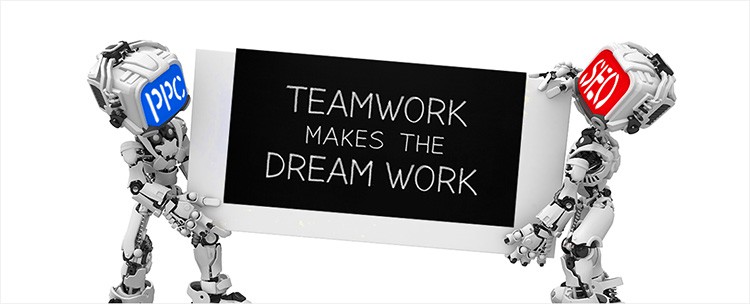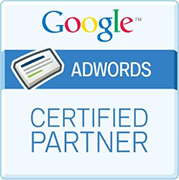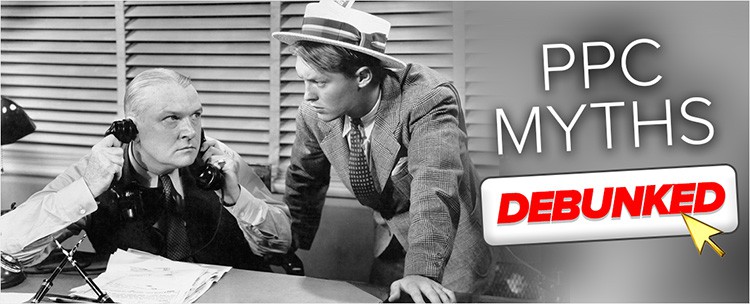Also known as Google AdWords, PPC stands for “Pay Per Click”. PPC is a digital marketing model used in order to direct traffic to websites, and it’s one of the most effective, rapid digital marketing tools around.
PPC allows advertisers to pay a fee every time one of their ads is clicked. Essentially, it’s a way of buying visits to your site, rather than attempting to “earn” those visits organically.
PPC is now a standard mechanism used by search engines, shopping portals and social media platforms for selling advertising.
Here’s how it works - the super-quick version. Your ad targets certain keywords relevant to your business. For example, keywords for a florist could be “online florist”, “buy flowers online”, or “flower delivery”.
When someone searches one of those keywords, Google places your ad in the top three results (usually in a light yellow box).
There are many benefits associated with using PPC. A highly efficient way to immediately funnel traffic to websites, one of the biggest perks of PPC is its speed. It’s also highly targeted and results are very clearly measurable.
It can also be extremely affordable. When PPC is working correctly, the fee is trivial, because the visit is worth more than what you pay for it.For instance, if you pay $3 for a click, but the click results in a $300 sale, you’ve made a sizeable profit.
While it’s no secret that PPC gets serious results, many misconceptions circulate about how it works, and these move around in both the digital marketing world and in the small business one. Some of these are deeply entrenched, and result in considerable confusion.
Here, we’ve dispelled seven common myths about PPC to make it easier for you to work out whether it’s the right digital marketing tool for you.
1. It’s enough to just set it up and leave it

A lot of small business owners are under the impression that they can just load in their keywords and ads, set a budget, and walk away.
This isn’t an effective PPC strategy.
The thing is, you want to make the most of the money you’re spending. It takes regular, constant monitoring, testing, bid lowering and increasing, and turning on and off in order to make the most of the money you’re spending. Constant experimentation is what makes PPC work so well.
It is for this reason (amongst many others) that many businesses elect to hire digital marketing specialists, who can dedicate time and expertise to this PPC management process, which is almost a full-time job in and of itself. Being able to hand off this responsibility to someone who’s devoted to this task and has the necessary expertise is something that’s well worth the investment.
While it might sound simple, creating an effective PPC campaign requires considerable expertise, and picking the right keywords is something of a specialised art-form.
A digital marketing expert will be able to plan a sound, strategic PPC campaign based on best industry practices, the latest search engine protocol, and an extensive process of trial and error.
2. No-one actually clicks on PPC ads

Many people believe that nobody actually clicks on those results marked as advertisements at the top of Google’s results pages. This belief is a very common one, and it’s a sentiment that digital marketers hear all the time.
This simply isn’t true. Millions of people click on PPC ads.
Those of us who work in the digital marketing industry may be aware of the difference between natural and non-organic search results. However, many internet users won’t be able to distinguish between the two. And even if they could, they could easily be persuaded to click on your ad because of its magnetic copy.
3. Being #1 on Google will result in the most profit

Nope. Not necessarily true.
Sometimes, being #1 on Google will be profitable, and it’s certainly a desirable state. But sometimes, you might end up spending more money than what you’re actually generating.
Don’t get us wrong - being #1 gives you great visibility, and is great for branding purposes. However, it can also draw in people who are not yet ready to buy, but are still doing their research.
Some experimentation with advertisement position will let you to determine the positions which will help you achieve the right balance in terms of cost vs. value. Being #1 is a good place to be, but it’s not everything.
4. You don’t need PPC if you already have SEO

A lot of people seem to have this idea that PPC and SEO (“Search Engine Optimisation”) are arch enemies, and think that there’s some need to choose one or the other.
Wrong. A world of wrong.
PPC and SEO work extremely well when combined, resulting in increased visibility and exposure, maximisation of your conversions, scope for more in-depth testing, and many more compelling benefits.
PPC is also a great way to draw visitors to your website while your SEO rank slowly builds. SEO is a long-term endeavour and requires some patience while it takes time ramping up to where you can see and maintain favourable results. It has a kind of slow-burn effect.
In contrast, PPC gets results incredibly fast, and is therefore one of the most directional forms of digital marketing. It’s not that SEO is less effective than PPC. It’s more that you don’t get the same sense of immediacy with SEO, even though it’s a very powerful digital marketing tool. SEO and PPC therefore work especially effectively when used in sync.
5. PPC is just click fraud

Broadly speaking, click fraud occurs when a person, automated script or computer program imitates a legitimate user clicking on an ad for the purpose of generating a charge per click without having any actual interest in the target of the ad’s link. Basically, this results in the advertising campaign being ruined, causing their budget to run out faster.
Click fraud is something of a contentious subject. Strictly speaking, this isn’t a myth per se, but it’s certainly a hyped-up misconception.
Realistically speaking, it’s highly unlikely that this will happen to your campaign. And on the off-chance that it does, search engines are very good at keeping track of fraudulent traffic, and will actually refund your click money if they determine that some of your clicks are invalid.
6. My ads won’t reach the right customers

Nope. Not true. On the contrary, actually.
PPC is very likely the most highly targeted advertising platform available. It delivers ads for your products and services directly to the consumers who are most interested in them right at exactly the moment when they are searching for what you’re offering.
As mentioned earlier, PPC requires the use of particular keywords to work out when your ads will appear. These keywords relate directly to the search terms of Google users. If you choose your keywords correctly, your PPC ad will show up only when someone searching for your services is looking. It therefore lets you target the right customers with considerable precision.
However, effective keyword use is trickier and much more complex than it sounds. Given PPC’s popularity, there are plenty of businesses, like your direct competitors, who are targeting the same keywords. This makes finding affordably targetable keywords that will yield the best results a not-so-common skill.
PPC account management is hard work and time-consuming. A huge amount goes into building a successful PPC campaign: from researching and choosing the right keywords, to organising those keywords into sensible campaigns and ad groups, to setting up PPC landing pages that are optimised for conversions.
If you’re not a marketing expert, it is highly advisable to hire one to create your PPC campaign.
7. PPC is just for big businesses

Many people simply assume that PPC is for large businesses.
This isn’t true.
PPC is highly effective for businesses of all shapes and sizes. Many small businesses have benefited from PPC because it enables them to focus their ads on local markets and drive more leads.
PPC is especially beneficial to small business owners who’ve just begun and want to see clear results fast.
Once your PPC ad campaign is up and running, a well-targeted keyword campaign will have you appearing somewhere on the first page of related searches in very little time. You can begin receiving traffic minutes after launch.
PPC is therefore perfect for a business that wants to get noticed quickly, or one which is just starting out and wants quick, tangible results.
Sites n Stores was built on a PPC campaign, and has helped us grow to the business we are now – it’s something we still use every day.








